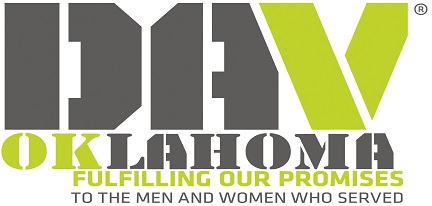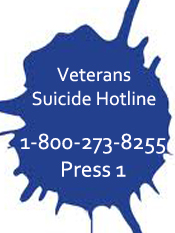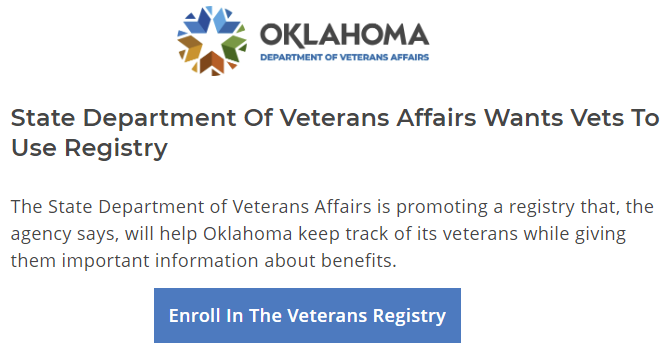Recent legislation makes it possible for many disabled veterans to fly Space-A on military aircraft. The 2019 National Defense Authorization Act allows veterans with a permanent and total service-connected Department of Veterans Affairs disability rating to travel space available on military aircraft. Veterans will be assigned a travel priority of Category 6, the lowest priority available, along with retirees and their dependents. Dependents of disabled veterans are not eligible for Space-A travel. Authorized disabled veterans can travel in the continental United States (CONUS) or directly between CONUS and Alaska, Hawaii, Puerto Rico, the U.S. Virgin Islands, Guam and American Samoa. Disabled veterans must have a DD Form 2765, Defense Department ID Card (Tan), in order to fly Space-A.
Not all Space-A flights originate from military bases. Commercial airports such as Baltimore-Washington Marshall International and Seattle-Tacoma International also offer Space-A flights. Long gone are the days of having to show up in person at the passenger terminal to register for a flight. Now, Air Mobility Command, which runs the Space-A program, lets you register for flights via email, and all Space-A terminals have Facebook pages where you can see what flights are coming up and how many seats are available. Check out AMC’s page for details on how to find your local Space-A terminal and instructions on how to register for a flight at https://www.amc.af.mil/Home/AMC-TravelSite.
• Space available flight eligibility update – 100% disabled vets now category 6:
Choice Rules May be Completely Rewritten in 2019:
Currently, the VA’s Choice program — the best known and most used of the community care programs — is restricted to veterans who live more than 40 miles from a VA facility or face a wait of more than 30 days for VA services. The new programs will likely jettison those rules in favor of a looser set of guidelines, including language for veterans who face “an unusual or excessive burden” getting their care at VA facilities. Veterans groups have advocated for more flexibility for care options but also warned against abandoning the current Veterans Health Administration, a key safety net for millions of veterans across the country. A congressional hearing previewing the Mission Act implementation work was scheduled for early December but was postponed due to the death of former President George H.W. Bush. That has only added more mystery and urgency to the drafts under consideration by top VA officials.
VA medical Marijuana:
Rep. Lou Correa thinks 2019 could finally be the year that medical cannabis becomes legal for veterans nationwide. “What do you tell a veteran who has brought back invisible scars and those opioids aren’t doing a darn thing for them?” the California Democrat said in a recent interview. “They say cannabis works for them. How do you argue against that? I don’t think there is a legitimate argument to oppose it.” Correa, who sits on the House Veterans’ Affairs Committee, has been pushing legislation since last spring that would require the Department of Veterans Affairs to research whether medical marijuana may be a safe and effective treatment for post-traumatic stress, chronic pain and other war wounds. He plans on re-introducing the measure early in the next Congress. The measure received strong Republican support in committee last year but stalled in the full House. Now, with Democrats taking control of the chamber, he sees an opportunity not just for an incremental legislative step forward, but passage into law. “I don’t see it as a partisan issue,” he said. “The bill last year had [committee] Chairman Phil Roe as a co-sponsor … Cannabis is one of those issues that more and more has taken a more bipartisan approach in recent years.” In fact, multiple Republican House members have pushed for broader authorities for VA to study and veterans to use the drug for medicinal purposes.
Congressional Budget Office suggests raising Tricare fees, cutting Veteran benefits to slash deficit:
The CBO suggested that increasing Tricare enrollment fees for working-age retirees — those under age 65 — could help slash the deficit by $12.6 billion. To obtain this, it said, the Defense Department should more than double annual enrollment fees for individuals and families enrolled in Tricare Prime and institute annual fees of $485 for an individual and $970 for a family for Tricare Select. Most working-age retirees currently pay no enrollment fees for Tricare Select.
Another option would be to introduce minimum out-of-pocket requirements for those using Tricare for Life. In this proposal, TFL would not cover any of the $750 of cost-sharing payments under Medicare and would cover just 50 percent of the next nearly $7,000.
According to the CBO, the Department of Veterans Affairs also presents several opportunities for cost-savings measures. Some suggestions in the CBO assessment include:
1)Narrowing eligibility for disability compensation for seven diseases the Government
Accountability Office has said are not caused or aggravated by military service, including
arteriosclerotic heart disease, chronic obstructive pulmonary disease, Crohn’s disease,
hemorrhoids, multiple sclerosis, osteoarthritis, and uterine fibroids. This option would save
$33 billion over 10 years.
2)Ending the VA’s individual unemployability payments to disabled veterans when they turn 67, the
retirement age for receiving full Social Security benefits, which would save an estimated $48
billion.
3) Reducing disability benefits to veterans older than 67 who are receiving Social Security
payments. This could save the government $11 billion.
4)Eliminating disability compensation for 1.3 million veterans with disability rates below 30
percent, saving $38 billion over an eight-year period.
Veterans welcome? Less than 2 percent of Capitol Hill staffers have military experience:
How many times have you heard the media state that there are XXnumber of veterans either in Congress or working as Congressional staff members? In an article by Leo Shange on January 10, 2019 fewer than 2 percent of congressional staffers have served in the military, despite years of warning from advocates about the need to include veterans’ perspective in policy work and pledges from lawmakers to help separating service members find work. The number of veterans elected to Congress this session dropped to under 100, the lowest level since before World War II. But that still equates to about 18 percent of legislators being veterans, far above the staffer levels.
Veterans are 50% more likely to commit suicide:
Veterans are more likely to commit suicide than nonveterans and younger veterans are most at risk according to VA data. Veterans (and acitve military) who deployed to the Gulf War, Iraq, and Afghanistan have deployed more than 2 times and this may be 1 reason for the increase in suicides. Vietnam veterans have often said that being in combat creates “wounds that don’t bleed” and if a veteran talked about his/her experiences, most would never believe them.
What can veterans expect in 2019? According to officials, VA expects to:
Meet the June deadline to end the Choice Program as we know it and have the new community care program up and running. This means VA will be using new, simpler access standards for veterans to get care in thecommunity, including access to new walk-in services for urgent care using retail providers.
Certify a new caregiver IT tracking system to better manage the care and services delivered through VA. The secretary must notify Congress by October that he has certified the system and that it is in place before the current program of comprehensive caregiver support services can move forward and be expanded over the next two years to veterans of all eras.
Certify a new caregiver IT tracking system to better manage the care and services delivered through VA. The secretary must notify Congress by October that he has certified the system and that it is in place before the current program of comprehensive caregiver support services can move forward and be expanded over the next two years to veterans of all eras.
Blue Water Navy
On January 3, 2019, House Veterans’ Affairs Committee Ranking Member, Dr. Phil Roe (TN), introduced H.R. 203, the Blue Water Navy Vietnam Veterans Act of 2019. On January 8, 2019, House Veterans’ Affairs Committee Chairman, Mark Takano (CA), introduced H.R. 299, the Blue Water Navy Vietnam Veterans Act of 2019.
Nearly identical legislation was approved in the House last year by a vote of 382 to 0. Unfortunately, the legislation was not approved by the Senate so it must be approved again by the new 116th Congress.
Both bills would expand the presumptions for service connection related to exposure to herbicides containing dioxin, including Agent Orange, to veterans who served in the territorial seas of the Republic of Vietnam during the Vietnam War.
Veterans who served on ships in the waters off shore of Vietnam are arbitrarily and unjustly denied benefits of the presumption of exposure, and thereby are ineligible for presumption of service connection for herbicide-related disabilities. These bills would correct that injustice.
DAV strongly supports H.R. 203 and H.R. 299 and both bills are in accord with DAV Resolution No. 033.
Please use the prepared electronic letter or draft your own to urge your Representative to support and cosponsor H.R. 203 and H.R. 299. As always, we appreciate your support for DAV and your grassroots activism in participating in DAV CAN. Thank you for all you do for America’s veterans and their families.
Take Action
• Lawmakers worry none VA Private care program could be a ‘train wreck’:
Lawmakers from both parties cautioned the Veterans Affairs Department to tread carefully in enacting a law President Trump signed last year to give more veterans access to private sector health care, suggesting the current trajectory could sabotage the entire program.
VA is actively seeking to address potential pitfalls through its negotiations with potential contractors that will make up the “community care network,” Secretary Robert Wilkie told a joint, bicameral congressional committee on Wednesday. Criticisms came from an array of sources, most of whom voted to approve the MISSION Act last year.
Sen. Jon Tester, D-Mont., the top Democrat on the Senate Veterans Affairs Committee and a cosponsor of the Mission Act, said he has “grown increasingly concerned” about the law since it sailed through Congress last year. He accused VA of going down a “different road” than it was just six months ago with regard to its implementation. He suggested VA is now considering a complete outsourcing of certain procedures and appointments, as well as giving veterans carte blanche to pursue private care outside of VA based on “arbitrary” wait times or distance from a VA facility. One of the main tenets of the new law was to move away from such metrics for determining eligibility for outside care, Tester said.
• 115th Congress – Veteran legislative summary:
Congress was able to send several bills to the president before it concluded the 115th Congress. These included:
• S. 2248, a miniature omnibus package, which improves programs for homelessness veterans, transition assistance, veteran-owned small businesses, student veterans, and also includes the SIT-REP Act, which would protect student veterans from penalties due to delayed GI Bill payments.
• S. 3777, Forever GI Bill Housing Payment Fulfillment Act of 2018, which will require VA to set up a team to plan and schedule dates for when student veterans who were impacted by GI Bill payment problems will receive their corrected housing payments.
• S. 3661, which requires DOD to conduct a program to commemorate the 75th Anniversary of WWII and support programs sponsored by veterans organizations and local governments. • S. 2679, Veterans Small Business Enhancement Act, which enables veteran-owned small businesses to participate in the Federal Surplus Property Donation Program.




